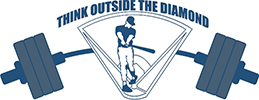We’re taught to be conscious of over-training and its symptoms, because in the athletic world, fatigue leads to training derailments, illness or injury. However, what often goes unrecognized, by both coaches and athletes, is under-recovery. Even worse: under-recovery is often misdiagnosed as over-training. So what’s the difference?
Over-training occurs when an athlete trains too much and too often, piling high central nervous system (CNS) loads too close together—i.e., too much heavy volume in a concentrated period of time.Often, an athlete is doing more than his or her coach is aware of, like playing sports at school without informing coach before a second or third workout of the day. Sustained activity like that inevitably leads to over-training.
Under-recovery is different. Recovery cannot be left to chance in any sport, especially for high performing athletes, whose training loads tend to be high. If recovery between sessions is not managed, symptoms of over-training will be evident, and rest will be required to allow the body time to recover. And since high performing athletes need to train regularly and often, avoiding under-recovery is essential to enable their bodies to be ready for the next session. Proper hydration, proper nutrition, hydration therapy, massage and, of course, rest between sessions should do the job.
Over-training and under-recovery have the same result, and they are sufficiently similar that most athletes understand the need for rest until symptoms are alleviated. But if under-recovery is diagnosed as over-training, the athlete will train less, and this could put him or her at a significant disadvantage. If you are to train to your optimum level, you must manage your recovery actively and thoroughly. Make sure you are resting 12 to 24 hours between high-intensity workouts lasting an hour or more, getting enough sleep and eating right. The alternative is to train less; and although that will cure the symptoms, it will certainly not improve your chances of success.
Guest Post By: Ramon Williams, originally published on Stack.com

